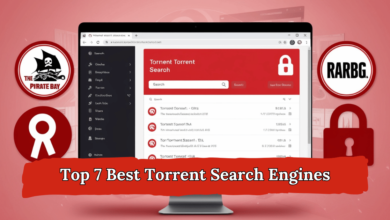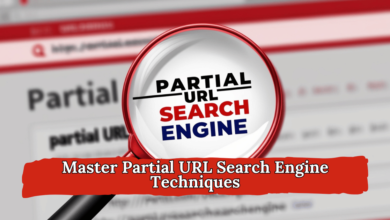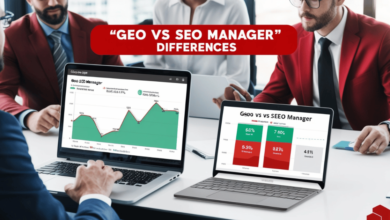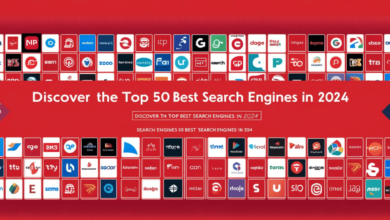
Marketing has become a crucial element in the competitive business landscape, and with countless methods at your disposal, finding the Best Marketing Strategy for Business can be overwhelming. Whether you are a startup or an established company, choosing the right approach directly impacts your growth, brand visibility, and ROI.
In this article, we will dive deep into top marketing strategies, compare their effectiveness, and help you determine the best approach for your unique business goals.
Understanding the Basics of Marketing Strategies
Marketing strategies encompass a range of techniques designed to promote products, engage with customers, and achieve a competitive advantage. The ultimate goal of the Best Marketing Strategy for Business is to generate sales while creating a loyal customer base.
Key Components of a Successful Marketing Strategy
Every successful marketing strategy contains critical elements that must work cohesively to produce optimal results. These include:
- Target Audience Identification: Knowing your audience is crucial.
- Value Proposition: What sets your product apart?
- Channels of Distribution: How will you reach your audience?
- Tactics for Engagement: Methods like SEO, influencer marketing, and content creation.
Exploring the Top 7 Marketing Strategies for Business in 2024
- Content Marketing
Content marketing remains one of the most effective methods for businesses. It involves creating valuable content to educate and engage your audience, positioning your brand as a leader in your field.
Advantages: Builds trust, generates leads, and boosts SEO performance.
Best For: Long-term growth and brand awareness. - Influencer Marketing
This is a game-changing strategy, especially in industries like fashion, beauty, and lifestyle. Collaborating with influencers who have a large following helps expand your reach.
Advantages: Quick brand visibility, effective for new product launches.
Best For: Businesses looking to tap into new audiences fast. - Affiliate Marketing
This performance-based marketing strategy rewards affiliates (partners) for driving traffic and sales. Unlike influencers, affiliates work on commission.
Advantages: Pay-per-performance model reduces risk, increases revenue.
Best For: E-commerce businesses. - Search Engine Optimization (SEO)
An SEO-focused strategy increases visibility in search engine results. By improving your website’s ranking, you can organically drive more traffic.
Advantages: Cost-effective, builds long-term traffic.
Best For: Businesses of all sizes seeking sustainable growth. - Social Media Marketing
Harnessing the power of platforms like Instagram, Facebook, and LinkedIn can drive massive engagement.
Advantages: Direct audience interaction, paid advertising options.
Best For: Companies targeting millennials and Gen Z. - Email Marketing
Email marketing remains one of the highest ROI-generating strategies. Personalized emails keep customers informed and encourage repeat purchases.
Advantages: High conversion rates, nurturing customer relationships.
Best For: E-commerce and service-based businesses. - Pay-Per-Click (PPC) Advertising
PPC allows businesses to bid for ad placement on search engines. Every time a user clicks on your ad, you pay.
Advantages: Immediate results, measurable performance.
Best For: Businesses seeking fast leads and traffic.
Affiliate vs. Influencer Marketing: Which is the Better Strategy?
Both Affiliate Marketing and Influencer Marketing are powerful strategies, but which is better for your business?
Advantages of Affiliate Marketing
- Cost-Effective: You only pay for successful conversions.
- Scalability: Easily expand your program by recruiting more affiliates.
Advantages of Influencer Marketing
- Brand Awareness: Influencers introduce your product to their followers.
- Consumer Trust: People trust the recommendations of influencers they follow.
When to Choose Affiliate Marketing
If your goal is to increase sales without upfront costs, affiliate marketing is ideal. It allows businesses to reach new audiences while only paying for tangible results.
When to Choose Influencer Marketing
For businesses that prioritize brand visibility and want to generate buzz around new products, influencer marketing is the way to go. It provides immediate exposure.
How to Choose the Best Marketing Strategy for Your Business
Choosing the Best Marketing Strategy for Business depends on several factors:
Business Goals
- Is your goal brand awareness or immediate sales? For long-term growth, consider SEO or content marketing. For fast results, PPC or influencer marketing might be better.
Target Audience
- Where does your audience spend their time online? Are they more likely to follow influencers, or are they actively searching for products?
Budget Constraints
- If budget is limited, organic strategies like SEO and content marketing are more affordable. However, if you want instant results, you might want to allocate budget to PPC campaigns.
Industry Type
- For e-commerce businesses, affiliate marketing can be more beneficial. Meanwhile, social media marketing may work better for service-based businesses.
The Role of Data Analytics in Optimizing Your Strategy
Data analytics helps businesses track performance and optimize their marketing strategy. Using tools like Google Analytics, businesses can measure:
- Conversion Rates
- User Engagement
- Return on Investment (ROI)
Regular analysis helps businesses tweak their approach, ensuring continuous improvement.
Conclusion: Implementing the Best Marketing Strategy for Business
In 2024, the Best Marketing Strategy for Business will be one that aligns with your goals, engages your audience, and provides a measurable ROI. Whether it’s content marketing for brand growth, PPC for immediate traffic, or affiliate marketing for increased sales, the right strategy can propel your business to new heights.
FAQs
What is the most cost-effective marketing strategy?
Content marketing and SEO are the most cost-effective long-term strategies. They require an upfront investment of time and effort but provide sustainable growth.
How do I know which marketing strategy is best for my business?
Start by defining your goals, identifying your audience, and evaluating your budget. You may need to experiment with different strategies to see which one delivers the best results.
Can I use multiple marketing strategies at once?
Absolutely! Many businesses combine strategies like content marketing, PPC, and social media marketing to maximize their reach and ROI.
Is influencer marketing effective for small businesses?
Yes, micro-influencers (those with smaller followings) are often more affordable and can deliver better engagement than high-profile influencers.



